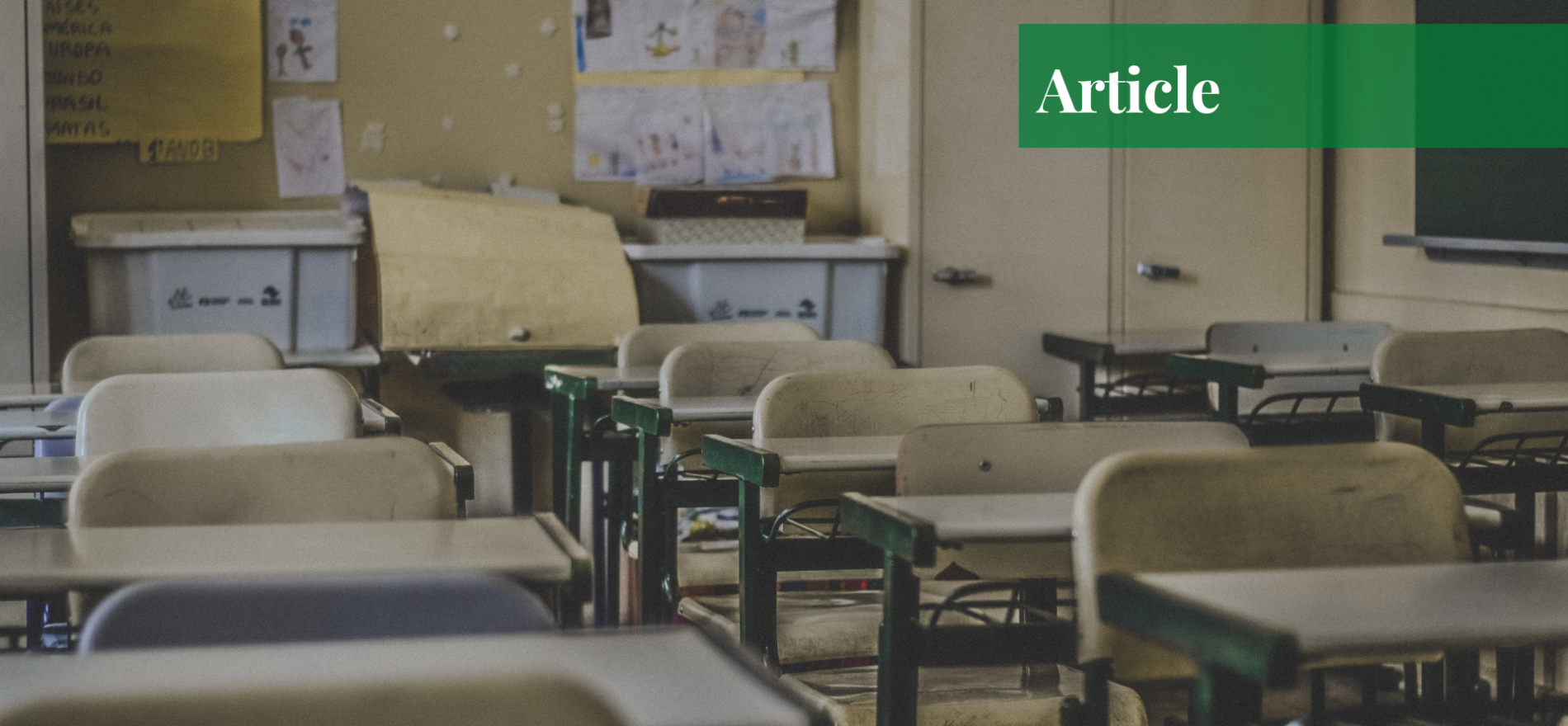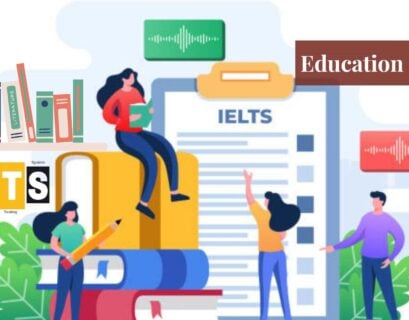Mr Deepak Lal graduated with a BBA with a major in finance from the Institue of Business Management (IBM). He is pursuing his Master's at IBM and working as assistant manager of finance and accounts at Data Enterprises.
Right to Education
Article 25-A of Pakistan’s constitution states that every child has a right to an education to be provided by the state regardless of whether the child is able to afford it or not. However, after the 18th amendment, the education system in Pakistan has been divided into different strata which have created a severe disparity between rich and poor. Consequently, the incumbent government of Pakistan to fulfill its promise of election manifesto decided to introduce a single national curriculum (SNC) to diminish the class-based education system in Pakistan.
However, the proposed SNC reveals that it has been constructed to achieve the state’s ideological imperatives rather than pedagogical aims. On top of that, it promotes the majority view of religion and neglects pluralism and diversity. Similarly, it opposes federalism and encourages centralism and homogeneity by neglecting the 18th amendment.
Therefore, even though the SNC is a step in the right direction for Pakistan, the aims and motives of the state seem to be ideological rather than improving skill development and the state of education. Hence, some amendments and improvements are required to make it more inclusive and effective for the country.
Pakistan’s Underfunded Education Sector
A Single National Curriculum is defined as a system that will offer the same quality of education to everyone irrespective of class division. From curriculum to assessment there would be uniformity, to provide equal and high-quality education to everyone; be it public, private, or madrasah. Coming to the key characteristics of quality education and skill development, the content to be taught to children holds great significance.
If all the successful education systems are considered around the world, they encourage pluralism, diversity, and secularity. It also promotes critical thinking, problem-solving and inquiry-based learning, not confined to rote learning and an over-burdened curriculum to make it look appealing. Thus, a curriculum of education is imperative for a good education system. Furthermore, the quality of teaching methodology plays a major role in the learning and development of any child. Without quality teachers, a child would be on his own and might struggle to cope with burgeoning schoolwork.
Teachers are instrumental in the growth of kids as they spend most of their early years at school learning. Therefore, state and private schools must hire efficient and effective teachers for better delivery of knowledge. In Pakistan, the teaching quality of public schools is in dire straits. So, it is crucial to recruit good teachers for schools.
Moreover, without proper infrastructure, no education system can progress and advance to compete with modern challenges. In developed countries, even public institutions have a decent infrastructure to promote education, whereas, in Pakistan, the infrastructure of public schools and colleges is demoralizing.
It does not have functioning classrooms, washrooms, stationary, chairs, let alone quality teachers. Hence, it discourages parents and children to obtain education from public schools. Accordingly, providing basic resources to public institutions should be the top priority of the state for the advancement of the education system.
More importantly, the availability of funds is key to ameliorating education systems with modern requirements. The days are gone when students would secure conventional degrees and get good jobs. In the contemporary world, acquiring technological knowledge has become the need of the hour.
Subsequently, developed countries invest heavily in their education system to upgrade their infrastructure. On the other hand, in developing countries, research, technological and vocational training is limited due to paucity of funds. Pakistan invests only 1-3 percent of its GDP on education. So, an increment in funds is necessary to upgrade the education system and revamp current public institutes.
Pakistan’s Single National Curriculum (SNC)
This part will shed light on the ideological motives of the proposed uniform education system by the government. Firstly, the Single National Curriculum is focused on religious nationalism. It takes us back to the education policies of the late 1970s, which were focused on Islamic education and inculcating Islamic values and norms for ideological purposes.
Considering that Pakistan has different sects within Islam and minorities, it is going to be detrimental. This curriculum instead of promoting a single education system would encourage a rigid mindset of theocracy. Hence, the ideological motives of religious nationalism are detrimental to the quality of education and skills development.
Secondly, there is a likelihood of greater sectarianism as the curriculum reveals it to be the indoctrination of a singular view of religion. The successful and progressive education systems egg on pluralism and diversity to allow freedom of expression. Even in Islam, there are numerous sects and a country like Pakistan has Shia’s, Barelvi, Wahabi, Deobandi, and other minorities. So, instead of instilling social harmony and peace, it may lead to ethnic tensions.
No alternative has been mentioned for minorities who belong to different religions. Bombarding kids with religious education in the early years of education may limit the thinking capacity of children in one direction. All in all, ethnic tensions may aggrandize with the implementation of this proposed uniform education system.
In addition to this, the absence of women and their legacies gives an impression of a gendered curriculum. Islamic history and education mention only two women: Hazrat Ayesha (RA) and Hazrat Khadija (RA). Moreover, only their subservient role of being good wives is highlighted and not their accomplishments in other fields like business. On top of that, the achievement of women in other fields like arts, literature, media, philosophy, acting, singing, etcetera has been ignored.
In a nutshell, it promotes ideological motives which egg on the mindset of patriarchy in Pakistan, where the existence and role of women have been undermined. Similarly, history is all about glorifying personalities in power and more specifically military heroes. It completely ignores the role of minorities, women, workers, and peasants. At the same time, it does not mention the struggle and the freedom movement of our ancestors.
The critical chapter of colonial legacy has been ignored as well. The state needs to teach history to enlighten children about social changes rather than glorifying personalities. The knowledge of history is supposed to guide youth about present challenges. However, the history contained in the SNC neglects the important elements of social change and independence of Pakistan.
Apart from that, the teaching of human rights is a guiding principle for all citizens which has been compromised in this curriculum. The basic civil rights are a must to teach children to be responsible citizens. it allows citizens to learn about respecting everyone in the society irrespective of race, colour, creed, and gender.
Since the curriculum revolves around burdening students with rote learning, memorization, and a heavy dose of religious education, the elites might not let their children study in this system. So, instead of reducing class-based systems, it might aggravate them. If madrassah faculty teaches their ideological teaching in private schools, it would inculcate fear amongst students since they have a history of enforcing jihadist education.
The Prospects and the Pitfalls
The elite and upper-middle-class would rather pursue secular education and secure top leadership positions, whereas the other classes would be further downgraded with a rigid mindset. As a result, this curriculum would increase the disparity between the rich and the poor. Since the SNC promotes radicalized rote learning, there would be two forms of opposite systems in Pakistan: one that teaches secular curriculum and allows students to think freely, while the other would teach Dars-E-Nizami, a memorized content.
So, it would be practically challenging for the state to confront this challenge. Also, there is a huge shortage of quality teachers in Pakistan. The poor utilization of funds is a huge concern as well. To adjust new students and teachers with limited funds would be a gigantic task. At the same time, Pakistan has 44 percent of children that are out of school.
On top of that, modern challenges demand a focus on digital learning after the outbreak of Covid-19. Therefore, ineffective and inefficient allocation of resources is a bigger challenge. However, if the following steps are taken appropriately, it could make the implementation of the SNC more effective and inclusive rather than giving rise to radicalization.
Additionally, these steps along with the modus operandi presented by the state would be more beneficial for prospects of the education system in Pakistan. So, first and foremost, it is imperative to indoctrinate social cohesion and unity rather than divisibility and resentment that comes with a singular view of religion. For peace and stability, interfaith harmony is very crucial.
On the whole, it is important to ensure pluralism and diversity in the curriculum. In addition to this, instead of overburdening kids of primary school with memorization, rote-learning and extensive course work, critical thinking should be enhanced. The modern-day challenges require modern solutions. For that, it is necessary to have analytical, critical and problem-solving teaching methods to widen the scope of students.
Similarly, it would boost the ability of the workforce in Pakistan to deal with technical and technological aspects at work. Pakistan expects a 79 percent learning poverty, according to a World Bank report. Hence, it is the need of the hour to introduce analytical and inquiry-based learning in schools. Also, all is not doom and gloom in Pakistan. There are some of the finest and renowned schools in Pakistan that could be replicated to devise and ameliorate the SNC.
Why not follow the institutes that have been successful in producing some of the top professionals in the world? Institutes like Agha Khan University, Lahore University of Management Sciences, Aitchison College, Karachi Grammar School, and many more of such quality could be taken into a loop. Moreover, there is a dire need to enhance the education budget in Pakistan. Without increasing the budget, it is impossible to improve the current depleting setup of education.
By increasing funds for education, the 44 percent of children that are out of school children can be taken into consideration. More funds can be allocated to technical education and vocational training, and Research and development (R&D) centres can be opened to tackle modern challenges. Apart from infrastructure, robust faculty is also needed. Therefore, the due focus should be given to increase resources for the learning and development of children.
Conclusion
In the light of the above paragraphs, it can be concluded that a single national curriculum comes with its challenges. It not only highlights the unnecessary focus on ideological aspects to promote a singular religious view but also discourages elements of thinking outside the box. There is a tunnel view in designing its content which is confined towards rote learning and memorization.
Although the single national curriculum is a positive step, its methodology is tilted towards religious nationalism. So, it is important to make changes that could prove to be more comprehensive and practical to broaden the scope of the curriculum.
If you want to submit your articles and/or research papers, please check the Submissions page.
The views and opinions expressed in this article/paper are the author’s own and do not necessarily reflect the editorial position of Paradigm Shift.



















